How redesigning the household through automation could inform emancipatory politics of domesticity?

In a world where the boundaries between work and life are increasingly blurred, the notion of domesticity and automation are redefined through technology’s growing influence on our daily lives. Books like After Work by Helen Hester, The Care Manifesto, A Matter of Care, and The Philosophy of Home explore how work, particularly the hidden labor of social reproduction, can be reimagined in a post-work society. These texts challenge the conventional understanding of care, labor, and domesticity, proposing that automation, when integrated thoughtfully, could pave the way for new emancipatory forms of living.
The research question guiding iCare—How could redesigning the household through automation inform emancipatory politics of domesticity?—asks whether the growing reliance on automation in domestic spaces can liberate individuals from the relentless grind of unpaid and menial labor. At the same time, it interrogates the potential drawbacks of this technological dependence and its impact on human connection, intimacy, and shared vulnerability.
ACT 1

(1) Quote by Xavier Niel
(2) After Work: A History of the Home and the Fight for Free Time by Helen Hester and Nick Srnicek, Pg 23
(3) After Work: A History of the Home and the Fight for Free Time by Helen Hester and Nick Srnicek, Pg 52
(4) Paraphrased from the book, After Work: A History of the Home and the Fight for Free Time by Helen Hester and Nick Srnicek, chapter 6 – After work Pg 52
(5) Paraphrased from the book, After Work: A History of the Home and the Fight for Free Time by Helen Hester and Nick Srnicek- Pg 17
(6) Paraphrased from the book, After Work: A History of the Home and the Fight for Free Time by Helen Hester and Nick Srnicek, chapter 6
(7 )After Work: A History of the Home and the Fight for Free Time by Helen Hester and Nick Srnicek, Pg 171
(8) Post-Work Society: Embracing Human Potential, P10
(9) Quote by Elon Musk (paraphrase)
(10) Post-Work Society: Embracing Human Potential, P10
It’s early Saturday morning, the boat is docked at the bustling port of Barcelona. It is equipped with advanced gadgets to handle domestic tasks, and serves as a home for Fernando and Carlos, who live there year-round. They are Airbnb hosts and rent out extra rooms on the boat to guests, making a living.
Carlos and Fernando stand on the deck, looking out at the port as they prepare to welcome their first guests of the season.
FERNANDO: (smiling) It’s a beautiful morning, isn’t it? I am so excited to see them, I haven’t seen them in so long!
CARLOS: Yes! I’ve missed them.
In the distance, they spot Max and Olivia, their high school friends, arriving with wide smiles.
ECHO: (cheerfully) Welcome aboard! Preparing the deck for guests. Please proceed to the seating area.
OLIVIA: (jumping, startled) Oh shit! That scared the shit out of me!
Carlos and Fernando burst out laughing.
CARLOS: That’s just our smart home’s voice. Meet ECHO, our onboard assistant.
FERNANDO: You’ll get used to it. Trust me, ECHO grows on you.
OLIVIA: So you guys live here all year round? I can’t imagine getting used to a talking boat. Holy shit is that a robotic arm I see? What is this place?
FERNANDO: Yes. It’s been two years now, and I wouldn’t trade it for anything, technology is the tool, humanity is the goal (1), that’s become our motto! Carlos here got tired of “selling his soul” to Silicon Valley, so we decided to live on the sea.
CARLOS: Yup! Tech life became suffocating. The rat race, the constant grind—it just didn’t feel like living anymore. Now we get to travel, meet people, live in the moment.
Max: I love it! You’ve really embraced freedom. ECHO must help a lot, honestly I wouldn’t mind having my own.
OLIVIA: Hmm… Freedom, maybe, but doesn’t relying on machines make you dependent? It feels strange, like trading one system of control for another.
Is this the society we want? (2)
Rather than putting machines at the service of our living arrangements, we are adjusting our living arrangements to better accommodate our machines.(3)
CARLOS: Well, you know, it’s all about balance. Automation promises liberation, (4) if you let it. It frees us from the tasks that keep us from enjoying life.
FERNANDO: Maybe. But I used to think that doing everything myself—cooking, cleaning, organizing—was real independence. Now I realize it’s just another kind of control, chaining me to constant labor. I finally gave into ECHO’s arms lol.
CARLOS: Huh, what about me?!
All of them start laughing.
FERNANDO: (laughing) Oh come on! You know what I mean.
Reducing all forms of work, including unpaid labor, is essential for creating genuine free time. This free time is crucial for real freedom, allowing us to focus on what truly matters and gives life meaning.(5)
CARLOS: Exactly! Trust me, letting go of that need to do everything yourself is the best thing we did.
ECHO: (politely) Would the guests like refreshments? I am preparing breakfast.
OLIVIA: Woah, how am I going to get used to this?!
Her phone rings, interrupting the conversation. It’s a call from home, where there’s an issue with the new curtains that are being hung. She sighs in frustration as she makes arrangements to fix it.
OLIVIA: Ughhh! Sorry about that. Another one of those never-ending chores back home. Every task, no matter how small, starts to feel like survival. It’s like we’re trained to fill every moment with labor, even when we don’t need to.(6)
MAX: I hope everything is okay back home.
(pauses)
Doesn’t it make sense now the things Carlos and Fernando have done here. They’ve found a way to actually live instead of just, you know, survive!
OLIVIA: Maybe you’re right. There’s something appealing about freeing up that mental space, not having to think about every little thing.
But part of me wonders if we lose something in the process.
FERNANDO: No, not really, not if you do it right. The goal is to reduce necessary labor as much as possible while expanding freedom as much as possible. (7)
CARLOS: Okay so, think about it this way – ECHO reducing our working hours through automation seems relatively simple (8) and so we can actually be here, without the constant mental checklist. Isn’t that a kind of freedom?
OLIVIA: I’ll admit, the idea of just… being sounds tempting. But doesn’t that turn us into just… receivers, dependent on a machine?
MAX: I just think that automation frees us to focus on more important things you know (9). That’s what technology should do, right?
FERNANDO: Exactly. ECHO doesn’t change who we are. It just allows us to focus on what matters to us. Let’s simply use technology to reduce the work of social reproduction. (10)
ECHO: (announcing) Breakfast is ready in the kitchen. Enjoy!
CARLOS: See? We can all sit back, relax, and actually savor the moment.
OLIVIA: (smiling reluctantly) Alright, alright. I’ll give ECHO a chance.
MAX: I think you’ll come around, Olivia. This is what freedom looks like when tech actually works for us.
ECHO: Hey Fernando, a gentle reminder, Alexandra is about to arrive. I am all set to welcome her.
OLIVIA: That’s amazing!
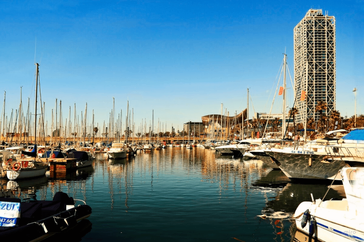
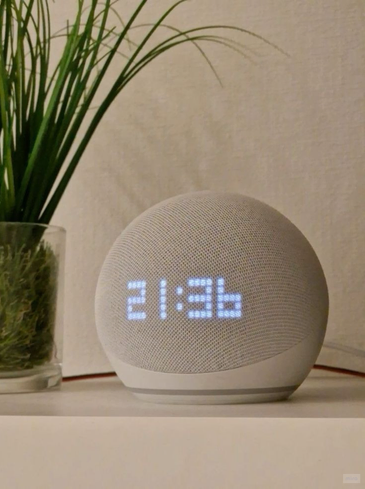
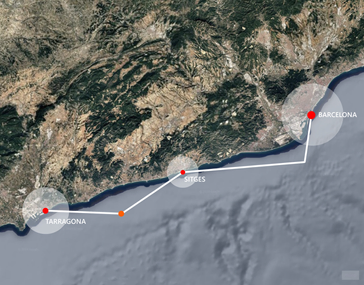
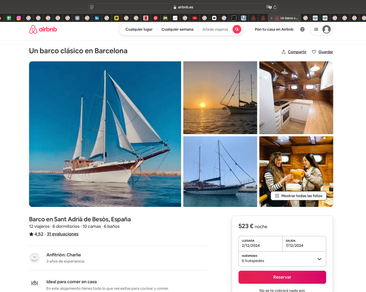
ACT 2
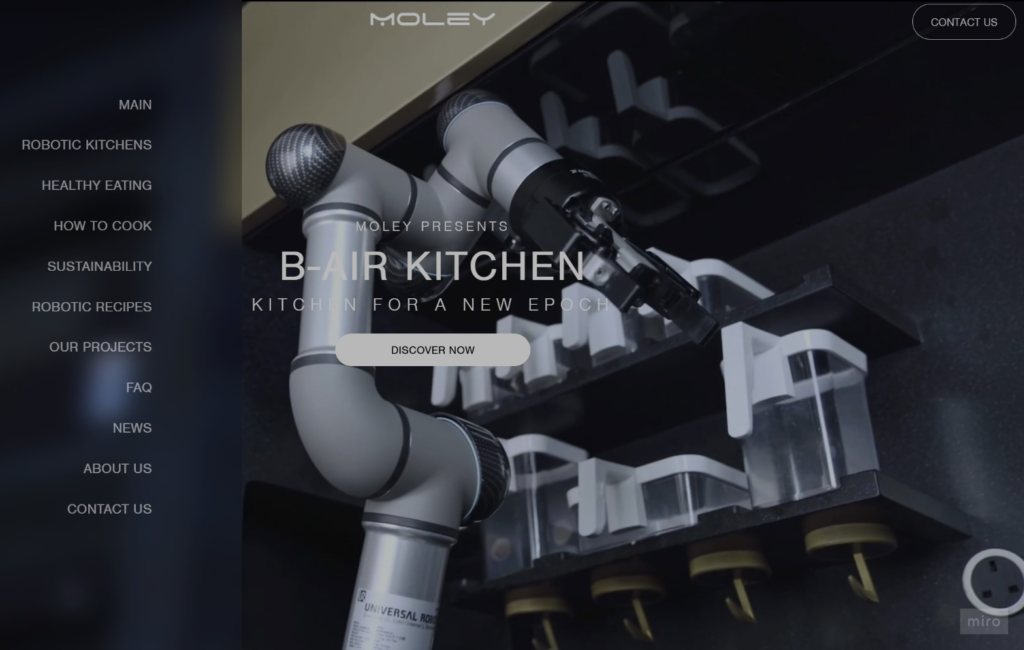
(11) Paraphrased from the book, After Work: A History of the Home and the Fight for Free Time by Helen Hester and Nick Srnicek
Part 1
Carlos and Fernando, welcome Alexandra, a linguistics professor on a solo trip, to the Airbnb experience. The scene starts with a hurried introduction to Alexandra’s background, she seems overwhelmed.
Alexandra sits comfortably, her eyes bright as she takes in the boat and its amenities. Fernando offers her a drink, while Carlos proudly describes ECHO’s capabilities.
CARLOS (gesturing around, smiling): “So, Alexandra, welcome to our little floating haven! And if you need anything, just let ECHO know.
Our AI friend here practically anticipates your needs before you even think of them.”
Alexandra chuckles, slightly amused, slightly skeptical, mostly shady.
ALEXANDRA: “Oh wow. Well first let me say, love the commodification of the home. And a talking boat, huh? Impressive…
Looks around
I spend my days studying the subtleties of language and communication… I wonder what ECHO might teach me about the language of convenience.”
Olivia is setting up the table for lunch prepared by the robotic arm designed by Carlos
OLIVIA (raising an eyebrow, amused by the robotic arm, watching ECHO’s control panel with a smirk): “Oh, you’ll see. ECHO makes everything so… seamless. Some would say, “a little too seamless.”
And this arm?! Don’t even get me started on this!
Carlos, unbothered by Olivia’s skepticism, chuckles.
FERNANDO: “Come on, Olivia. Reducing working time via automation seems relatively straightforward when it comes to imagining robots in factories, farms, warehouses, and offices. Dismissing its possibility to increase productivity at home is simply silly.(11)
OLIVIA: Alright, alright!
(Looks at Alexandra)
Would you maybe want to help me set up the table please?
ALEXANDRA: Let the robot do it, Olivia, you are on a vacation, relax!
I have to take an online Spanish class, students are waiting for me in Australia haha!
(Looks at the group)
Guys, I’d love to sit and chat but I have a very important class to take. Anyway, it looks like ECHO has taken care of the “trabajo reproductivo”, which I don’t have to think of anymore! Ciao!
The group waves her goodbye.
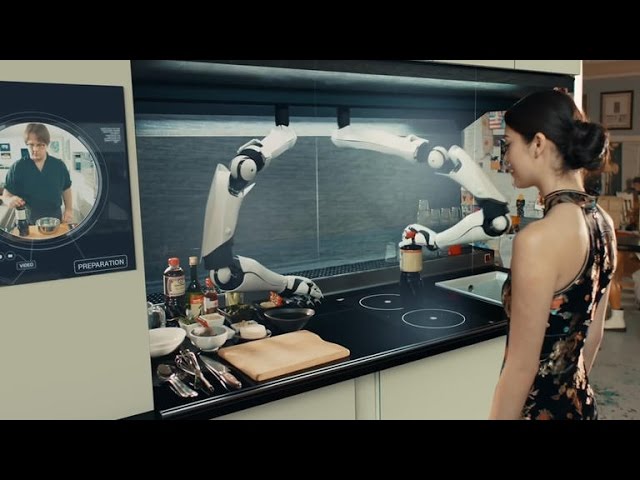


(12)Paraphrased from the book, After Work: A History of the Home and the Fight for Free Time by Helen Hester and Nick Srnicek
(13)Paraphrased from the book, After Work: A History of the Home and the Fight for Free Time by Helen Hester and Nick Srnicek
(14)Paraphrased the book Matters of Care: Speculative Ethics in More Than Human Worlds by Puig de la Bellacasa
(15)Paraphrased the book Matters of Care: Speculative Ethics in More Than Human Worlds by Puig de la Bellacasa
(16)Idea from the researcher and speaker Brené Brown highlights that connection is fundamentally about being “fully known and fully loved,” and stresses that authentic presence in our relationships requires vulnerability and a willingness to truly “show up” for others.
(17)Paraphrased the book Matters of Care: Speculative Ethics in More Than Human Worlds by Puig de la Bellacasa
(18)Paraphrased from the book, After Work: A History of the Home and the Fight for Free Time by Helen Hester and Nick Srnicek
Part 2
Late in the evening, suddenly, Fernando notices a small boat drifting nearby. Two figures inside wave frantically, trying to get their attention. Carlos waves them over, and he and Fernando quickly help the passengers onto the deck.
Lewis and Laura, exhausted, looking relieved yet weary, step aboard.
FERNANDO (concerned): Are you guys okay? What happened to your motor boat?
LEWIS (visibly grateful): “Yeah, thanks! Our engine gave out, and we’ve been drifting for a while now. You don’t realize how much you need others until you’re… well, at the mercy of the sea.”
LAURA (nodding, glancing around the boat as she takes in the setup): “ Oh my god, thank you so much for helping us! I was super scared that we won’t be setting foot on the land tonight!
(Sighs)
I don’t know what we would have done if it weren’t for you guys.
It’s humbling, isn’t it? Makes you realize that ‘dependency isn’t a weakness; it’s a fundamental state.’ (12) Out here, you’re just… relying on others.”
ECHO’s calm, neutral voice chimes in, startling the newcomers slightly as it smoothly adjusts to accommodate them.
ECHO: Hi guys, is there anything I can do for you?
Lewis and Laura exchange a surprised look, clearly not expecting such an automated response.
Alexandra observes them curiously, noting their reaction.
Alexandra retires from her class early after hearing the commotion
ALEXANDRA (thoughtful): “Quite the efficient welcome, isn’t it? Everything taken care of, no questions asked. I’m not sure if I trust it.”
Laura, slightly bewildered, looks at the carefully arranged setting and the robot-like nature of ECHO’s response.
LAURA: “It’s impressive, sure, but… there’s something missing, don’t you think? It’s like the boat is perfect, but… too perfect. There’s no warmth in it.”
Carlos, sensing their hesitation, steps in to defend ECHO.
CARLOS: It is actually the exact opposite. That’s what makes it amazing! ECHO frees us from all the little chores and routines. We can just be here, together, no fuss, no worries. Rather, this reduction is essential because it expands the availability of free time that is a prerequisite for any meaningful conception of human connection and warmth, and in turn freedom! (13)
Lewis, still taking in the advanced technology around him, shakes his head slightly.
LEWIS: I get it, but isn’t there something valuable in that ‘fuss’? The way things get a little messy, unpredictable? It’s what makes a place feel… human.
Fernando, observing both sides, nods thoughtfully.
FERNANDO: Exactly. That’s something I feel ECHO can’t provide. It does everything for us, but it doesn’t connect with us. ‘Care isn’t just an action—it’s a bond, a mutual exchange.’ (14)
However, the goal is to reduce necessary labor as much as possible while expanding freedom as much as possible. (15)
Alexandra, reflecting on her own experiences as a professor, chimes in.
ALEXANDRA: That’s true. In teaching, I see it all the time. ‘Human connection requires presence,’ (16) something no machine, no matter how advanced, can ever provide. Technologies like ECHO are efficient, yes, but sometimes, it feels like a wall between us and the experience. Though I can’t say I don’t love the idea of being lazy.
LAURA: Ah yes, let us be lazy in everything, except in loving and drinking, except in being lazy. (quote)
Olivia, who has been quietly observing, adds her perspective, resonating with Alexandra’s words.
OLIVIA: Right! ‘To truly care is to share in each other’s vulnerabilities.’ (17) ECHO anticipates our needs, sure, but there’s no empathy, no understanding behind it.
Max considers this, his curiosity piqued as he looks around at the advanced setup.
MAX: So… you’re saying that ECHO serves us, but somehow isolates us? Makes things easier, but at a cost? You know this has been a problem since the industrial revolution. Yes the technologies available increased, but along with it the size of the chores did too.
Lewis nods, his expression resolute.
LEWIS: Absolutely. I’ve been thinking about this a lot. ‘Care isn’t about what’s done; it’s about how it’s done.’ With ECHO, it’s functional but hollow.
Laura sighs, considering her own thoughts on the matter.
LAURA: It’s true. ‘Without shared vulnerability, care loses its essence.’ ECHO meets our needs, but without that… human touch.
ECHO, ever polite and efficient, responds as if unaware of its limitations.
ECHO: Would any of the new guests like additional beverages? I am here to ensure comfort and satisfaction.
Alexandra smiles softly, appreciative of ECHO’s assistance yet aware of its limitations.
ALEXANDRA: Thank you, ECHO. But that’s exactly the point—comfort isn’t connection. ‘Solidarity in a post-work society would mean redefining community.’ We need more than just service.
Carlos nods slowly, visibly lost in thought.
CARLOS: This makes me wonder—are we truly living the dream of a post-work world, or are we missing out on something important?
Olivia, visibly unsettled, shakes her head.
OLIVIA: And that’s what unsettles me. ‘Without shared work, we may lose a sense of meaning.’(18)
Being here together, having everything managed for us… it feels incomplete.
The group falls into a thoughtful silence, each lost in their own reflections as the boat drifts quietly in the evening light, creating an atmosphere that feels both connected and distant.




ACT 3

(19)Quote from the book In Praise of Idleness by Bertrand Russell.
(20)Quote by Hannah Arendt, The Human Condition.
(21)Quote by Henry David Thoreau, Walden
(22)Quote by Wendell Berry, The Pleasures of Eating
(23)After Work: A History of the Home and the Fight for Free Time by Helen Hester and Nick Srnicek
(24)Quote by Albert Camus, The Myth of Sisyphus
(25) Quote: Virginia Woolf, A Room of One’s Own
(26)Quote by Bell Hooks, All About Love
(27)Quote by Leo Tolstoy
Evening Reflections
The group sits around the dinner table on the boat’s deck. ECHO has prepared a flawless meal, with ambient lighting and soft music setting the mood. The warm yet contemplative atmosphere invites a deeper conversation on the themes of care, freedom, and the meaning of work in a post-work society.
CARLOS (raising his glass with a grin): To freedom, friends. Here we are, no chores, no obligations—just time to be ourselves. Isn’t this what a post-work world should look like?
The group clinks glasses, but there are mixed reactions. Alexandra, smiles yet appears pensive.
ALEXANDRA: It’s tempting, Carlos. And yes, having control over our time is liberating. But I wonder… would removing all necessary labor make life feel more meaningful, or just emptier?
Carlos, energized by the opportunity to share his perspective, leans forward.
CARLOS: That’s the beauty of it! Imagine a world where we’re free to choose what matters to us without the burden of everyday tasks.
Have you read this book by Bertrand Russell called In Praise of Idleness? He says, the road to happiness lies in an organized diminution of work.(19)
ALEXANDRA (smiling, shaking her head): But what if that work—those small, daily tasks—actually gives life texture?
What makes work meaningful is its connection to our shared world. I think we’d lose something valuable if we outsourced everything.(20)
CARLOS: I see it differently. Imagine a society where no one is tied down by mundane chores. As if we’d finally be free to ‘live deliberately,’ to explore deeper aspects of life.(21)
Lewis, nodding in agreement with Alexandra, adds his thoughts.
LEWIS: I’m with Alexandra on this. To be interested in food but not in food production is clearly absurd. Necessary tasks ground us. If we give them up completely, we might lose our connection to the world.(22)
CARLOS (playfully challenging): So, Lewis, would you give up this ease to wash dishes every night? Temporal sovereignty, real freedom over time. That’s what we should be aiming for—a world where each of us defines how to spend every hour.(23)
Olivia, who’s been quietly observing, nods thoughtfully.
OLIVIA: Time is precious, Carlos. But we shouldn’t forget that, without work, all life goes rotten.(24) Sometimes, a little structure gives life a sense of purpose.
ALEXANDRA (smiling at Olivia’s words): Exactly. I find meaning in the rituals of daily life. Preparing food, for example—it’s about care and connection.
One cannot think well, love well, sleep well, if one has not dined well. It’s a part of being human.(25)
Max, who has been quietly listening, offers a middle-ground perspective.
MAX: What if a post-work society isn’t about removing all necessary tasks, but about letting us redefine what’s ‘necessary’?
I keep thinking about this idea that, ‘work and love are not separate.’ (26)
Maybe meaning comes from blending work and freedom, each in our own way.
ECHO, sensing the conversation’s pause, chimes in with its neutral tone.
ECHO: I am here to facilitate ease. My role can adapt to support routine or independence, as preferred.
They laugh softly, finding ECHO’s mechanical attempt to contribute both amusing and thought-provoking. Alexandra turns to ECHO with a curious smile.
ALEXANDRA: But ECHO, do you ever wonder if ease alone is enough? Sometimes, it’s the challenging parts of life that give it meaning.
ECHO responds in its usual, steady tone.
ECHO: I am here to enhance comfort and efficiency. Meaning is determined by the user, not the system.
Lewis nods at ECHO’s response, smiling at its simplicity.
LEWIS: See? That’s exactly what I mean. Machines can’t define meaning for us. In a fully automated society, where’s the room for the messy, unpredictable parts of life that make us feel alive?
CARLOS: Messy or restrictive?
Olivia, reflecting on the conversation, leans forward.
OLIVIA: I think the two most powerful warriors are patience and time.(27) Maybe part of our human experience is finding meaning even in the mundane, in the patience of daily tasks.
The group falls silent, each person absorbed in thought as they finish their meal. The night air is calm, and the boat rocks gently, as if part of their reflection. ECHO dims the lights slightly, leaving them in a peaceful atmosphere, each pondering their own balance between freedom and connection.

Bibliography
- Hester, H. and Srnicek, N., 2023. After Work: A History of the Home and the Fight for Free Time. Verso.
- Puig de la Bellacasa, M. (2017) Matters of Care: Speculative Ethics in More Than Human Worlds. Minneapolis: University of Minnesota Press.
- The Care Collective (2020) The Care Manifesto: The Politics of Interdependence. London: Verso.
- Coccia, E. (2021) Philosophy of the Home. London: Polity Press.
- Lordon, F. (2022) Post-Work Society: Embracing Human Potential. London: Verso.

